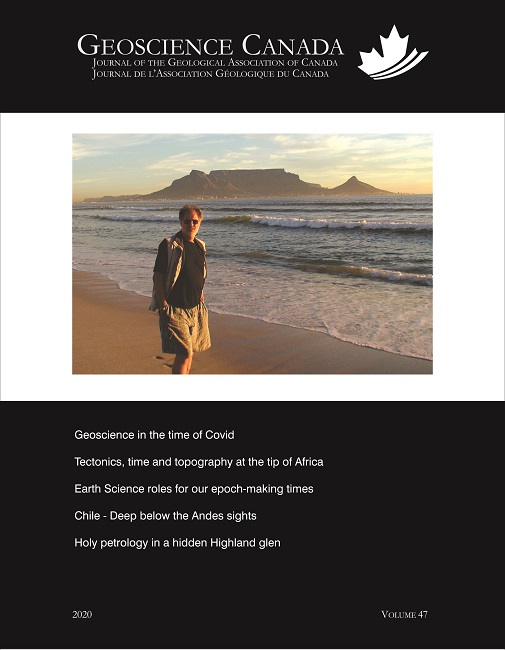Published 2020-07-10
How to Cite
Abstract
Increasingly, deliberations to potentially add the Anthropocene to the Geological Time Scale in recognition of humanity’s environmental impacts and stratigraphic record are attracting interest from non-geological disciplines and the news media. The 35 member Anthropocene Working Group, a constituent body of the International Commission on Stratigraphy, recently concluded that the worldwide fallout of radionuclides from atomic bomb testing in the mid-20th century best defines the base of the Anthropocene. With a search for the optimal ‘golden spike’ locality in progress as a key step toward any ratification by the International Union of Geological Sciences, there are widely held views outside of geological circles that the Anthropocene is already designated as an epoch. Regardless of its eventual formal or informal standing, this article opines that the term Anthropocene has become valuable shorthand for recognizing humanity as the dominant species which, in a geological nanosecond, has extensively detached itself from the Earth System, endangering the future of both. Accordingly, this article urges the entire geological profession to engage with the work of the Anthropocene Working Group and, as the originator of the term, to coalesce its activities with those of other disciplines concerned with environmental health and linked human health challenges.
RÉSUMÉ
De plus en plus, les délibérations visant à éventuellement ajouter l'Anthropocène à l'échelle du temps géologique en reconnaissance des impacts environnementaux de l'humanité et des données stratigraphiques suscitent l'intérêt des disciplines non géologiques et des médias. Les 35 membres du Groupe de travail sur l'Anthropocène, un organe constitutif de la Commission internationale de stratigraphie, ont récemment conclu que les retombées mondiales des radionucléides résultant des essais de bombes atomiques au milieu du XXe siècle définissent le mieux la base de l'Anthropocène. Avec la recherche de la localité de référence optimale du « clou d'or » en cours comme étape clé vers toute ratification par l'Union internationale des sciences géologiques, il existe des opinions largement partagées en dehors des cercles géologiques selon lesquelles l'Anthropocène est déjà désigné comme une époque. Indépendamment de sa position finale formelle ou informelle, cet article estime que le terme Anthropocène est devenu un raccourci précieux pour reconnaître l'humanité comme l'espèce dominante qui, dans une nanoseconde géologique, s'est largement dissocié du système terrestre, mettant en danger l'avenir des deux. Par conséquent, cet article exhorte l'ensemble de la profession géologique à s'engager dans les travaux du Groupe de travail sur l'Anthropocène et, en tant que créateur du terme, à fusionner ses activités avec celles d'autres disciplines concernées par la santé environnementale et les défis liés à la santé humaine.
